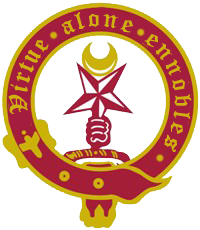“Human and organisational influences on maritime safety and system performance ” US Coast Guard.
The global maritime scene is a big part of globalisation and therefore attracts international attention; becoming one of the driving forces behind the global expansion of businesses. However, with the economic situations being of varied stability and prices rising; employers/marine operators turn to cheaper alternatives. Talking about the employees themselves, availability of human resources in developed countries grows smaller as increasing salaries of white-collar workers creates more opportunities for education and therefore advancement in careers; also allowing younger generations to take up a white-collar career.
This development decreases availability and desire to work in the blue-collar sector which causes marine operators to hire people from other places; including developing nations. Developing nations and marine operators also relate to the issue of Flags of Convenience/FOC vessels which carry more issues to the maritime sector. FOC vessels are a low-cost alternative to fully-featured commercial ships as they have little maintenance and mostly older than an average vessel. Such vessels are not liable to any regulations from legal and union issues.
FOC vessel owners hire crews from developing nations who may not even speak the English language with a low possibility of undergoing training before boarding since FOC vessels are an extremely economical alternative to commercial ones with more focus on profit. According to the IMO, official languages aboard ships are Arabic, Mandaring Chinese, Russian, Spanish, French and English; however crews may be hired from nations NOT speaking any of the above; warranting a form of communication which is not only limited to spoken dialogue but other forms of interactions aboard.
So assuming crew was hired but what can be expected if members are just ordered and assigned tasks with minimal interactions; creating a high possibility for error. Firstly, the rapport/relations between crewmen is especially dangerous in emergency situations where death and serious damage can be even more serious due to communication difficulties. Social difficulties due to communication issues will also occur due to this.
So why would a ship owner hire crews from developing nations while saving money on training and language education therefore risking damage to cargo and the vessel? Sometimes this is done as a somewhat necessary measure due to lack of candidates in developed nations as education is readily available which allows residents to advance in their careers and get a white-collar job which is highly paid; making a conclusion that seafaring is a relatively un-attractive option. This lack of blue-collar labour is also due to the fact that ships spend little time at port thus not using their location to its full potential. Finally, the main reason to the globalisation of crews is the rising standards of living in industrialised, developed countries thus requiring immigrant labour.
Another notable factor associating with ships and their crews is the fact that most modern builds decrease the demand of manpower which shortens the crew requirements but adds more responsibilities to a smaller crew; occasionally more than 2 on a single member. However, this mostly applies to modern builds whereas FOC vessels are older than an average vessel; requiring regular, if not more manpower which is found in abundance across the developing world where individuals would be happy to get a job as employment is a relatively big issue there.
FOC vessels as well as cosmopolitan crews is a big part of modern maritime which means that adaptation is the only logical solution to the problems presented here. Adaptation starts from knowing the theoretical factors behind the issue itself; the human error. Human error breaks down to 7 elements of inter-culture cooperation, power distance, collectivism, uncertainty, avoidance, masculinity and long term orientation; some creating higher probability of human failure than others. The factor of masculinity influences a higher probability of human error as face value, respect, shame along with social status negatively impacts on work safety. (Lu. et al, 2012) Alternatively, collectivism contributes towards safety as it promotes teamwork and co-operation as well as group dynamics.
An example of this is a case study by Gron and Knudsen, (2011) where Norwegian crewmen were compared to their Filipino counterparts where the former see work as value where individualism is highlighted; promoting masculinity whereas the latter see it as helping their family and local community which reduces risk taken. This case study points to crewmen mostly preferring to work alone as this is due to them not knowing enough about the others thus to avoid social conflicts; individualism is practiced.
Crewmen also depend on their superiors for tasks and adequate directions to make the ship run better; showing the factor of power distance, a hierarchical system which has a centralised system of orders, objectives and the deadline for their completion. This system allows for not only working together and helping one another but also risk reporting and creation of self-directed teams. However, the positive outcomes of this system depend on the team leader’s competence, experience and attitude as it would be reflected on the crew itself. The factor that closely associates with this the degree of uncertainty where the higher it is the lower the risk as uncertainty breeds fear of danger; better subordination among crews.
All the above factors can cause errors which can even determine the fate of a vessel, especially an FOC which is usually poorly maintained thus requiring a system that is more automatic and preferably, not relating to the human factor. This system would place importance on machines; group that works according to its pre-designed functions.
Machines would cost more to build and maintain but less in liability as crewmen are likely to compromise their health and life in the line of duty. Machines, also can be operated be less personnel which automates and facilitates vessel operation as well as relatively easier to teach instead of social etiquette and the English language. (Aside from technical terms, operation functions etc)

